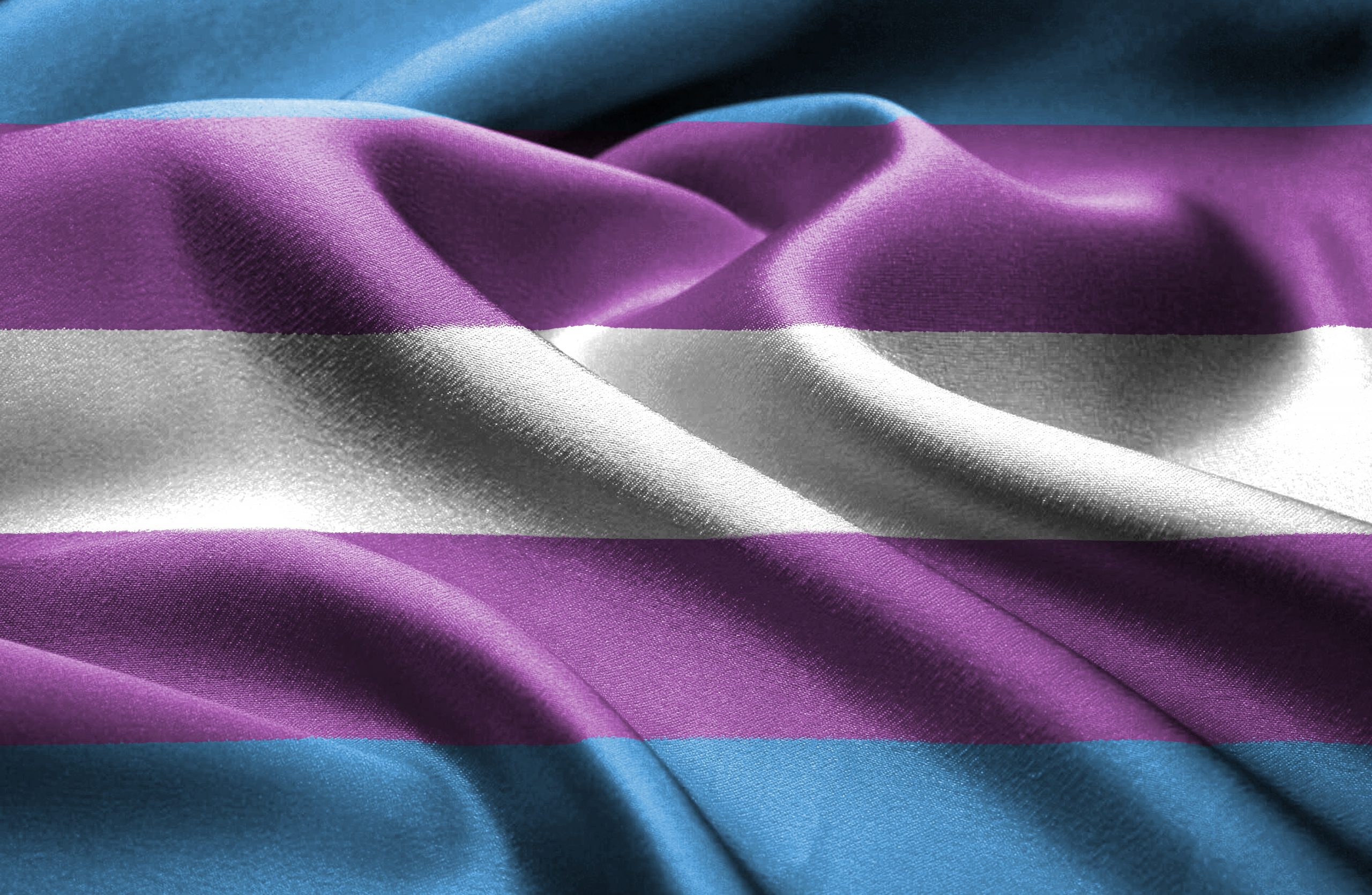Using my social media pages, I asked my friends and family to message me any question about transgender people they had itching in their brains. From the questions I got, I divided my answers into 12 sections. Read below to see what was asked and what my experiences as a transgender man have been:
1. How/when did you realize that you were transgender and how long did it take you to accept that for yourself? When did you realize you needed to transition and how long did you know you wanted to? Did you push off coming out due to societal pressure and fears?
Ever since my freshman year of high school, I told my close friends that I identify as a woman “out of convenience.” At around the same time, I started binding for the first time and had people call me Jay. I’m not sure “how” I realized it, or if this was the first time gender was a question mark for me, but it’s when I first started making the connection that maybe “woman” wasn’t the label for me.
From there I just suppressed all of these feelings for the next five years, and this happened for a few reasons. I grew up in an area that wouldn’t have been supportive of me transitioning. I love being feminine, and because of that I didn’t know what my exact identity was. Transitioning is really goddamn hard, both physically and emotionally. The list could extend to the ground, but it finally got to a breaking point for me where the list didn’t matter.
COVID-19 made us all do a lot of internal digging. We learned the good, the bad and the ugly about who we are, what we want and how we function. I truly think the pandemic is what forced me to rediscover my identity as a trans man. Of course, it would’ve exploded out of me eventually, but who knows how much longer it would’ve taken if I had in-person classes and extracurriculars to suck up all of my “me” time.
I decided to pursue gender therapy in spring 2021, and from there I came out publicly in February. I guess I don’t have a clear answer as to how this all happened. It just happened, and even with all the hardship it’s already caused me, I’m so goddamn glad it did.
2. How did you decide on your name?
My deadname initials are “J-R-B,” and my HRT doctor recommended “Jayar” from there. It’s a name I’d never heard before and I liked how it had a connection to my birth name, so I decided to stick with it!
My answer for this is brief only because I wrote an article a little while back on my experiences relating to my name change, which you can read by clicking here!
3. What was it like to come out to family and friends?
You know that feeling you get when you almost fall out of a chair but then catch yourself and you have that gross adrenaline feeling inside? That times 10 million.
4. Was it difficult to tell anyone about it? Who was the hardest person to tell if there was one?
It was honestly the most difficult to tell my boyfriend. When I came out, I was already with him for two years, and I wasn’t sure how he’d react. I’m happy to report that I am beyond lucky and he is my biggest supporter out of everyone in my life.
Beyond my relationship, telling my family was horrifying, but they are also supportive of my transition.
5. How did you go about starting T? Was it a conversation you had to have with your primary care physician, or could you go elsewhere to get it? Did you have any bad experiences when talking to any doctors?
This experience was one I had a hard time navigating. Taking testosterone as a transgender male isn’t exactly a long-practiced process. I was fortunate to be in free LGBTQ+ specialized therapy through my university, and I had my therapist at the time write a referral to the university’s health center to get me started. The referral took probably a month to process, and from there it only got more complicated.
I remember the beginning like it was yesterday. I had an appointment scheduled that I thought was the appointment where I’d receive the testosterone. Nope! I was supposed to bring it apparently, but no prescription was written for me yet, so that would be impossible. From there, I got a follow-up scheduled for the next week where they were supposed to insert the testosterone through needle and syringe while teaching me to do so at home. When I went to get the testosterone at my pharmacy, they told me they didn’t have it and I remember frantically trying to find a place that would actually give it to me.
Later that day, they called to inform me that they DID in fact have my testosterone and I could pick it up. Awesome, I have the drugs so I’m all set right? Wrong. I went to my follow-up appointment and apparently I was supposed to schedule an appointment with the nurse, not my doctor. They scheduled an appointment for me to see the nurse after about a two-hour wait. The nurse wasn’t informed that she was supposed to teach me to do it myself so I had to beg her to teach me so I didn’t have to come in again just to do something I could do in my bathroom.
There’s honestly nothing easy about being transgender, and since this is not as common of a procedure, I experience more complications than victories.
6. How does the public bathroom situation work?
I personally just use the men’s bathroom! I get a lot of funny looks, but I try to not let it get to me. I’ve luckily never had an endangering encounter when using the public bathroom, but I’ve definitely gotten staredowns and plenty of the “is this the men’s restroom?” kind of questions.
Side note: I miss the women’s bathroom. Urinals are so disgusting.
7. Since you’re dating a man, are you gay? Are all transgender people gay?
I could pick apart this question all day and give an entire lesson on gender and sexuality but I will try my best to keep this brief.
I personally identify as bisexual, which in my specific case means I like all genders with a preference for men. I’ve known I’m not straight since middle school when I came out as a lesbian in seventh grade and later as bisexual in ninth grade when I learned more about who I really am.
There is no link between me being a transgender man and identifying as bisexual: one is a sexuality and one is a gender. Sexuality is a label that identifies what gender(s) someone is sexually attracted to. In my case, I am sexually attracted to all genders and choose to identify as bisexual. Someone’s gender, however, is independent from sexual attraction. Gender is more about self-expression, comfort and personal identity. A person of any gender can also have any sexuality, and vice versa, because they are completely separate entities.
Of course, there are times where the sexuality label itself is also dictated by someone’s gender identity. For example, lesbians are (for the most part but not entirely) women who are attracted to women. That label is an example of gender playing a part in the label, but a woman is never attracted to other women because of her gender.
Just like people of different races, disabilities, backgrounds, cultures, religions and so on, each transgender person is completely different in terms of their individual experiences and identities, and that includes their sexual identity.
8. When are you getting top/bottom surgery?
Top and bottom surgery isn’t a necessity for transition, nor does anyone owe anyone else an answer to this extremely personal medical question. When my friends and family asked questions for this article, I told them everything is free game. Outside of this specific circumstance, people ask me this question casually as if it’s not, to say the least, an outlandish question to casually ask someone.
Here’s my answer: I would love to get top surgery, but s–t’s expensive. I have no idea when it will happen for me, but I’m hoping in the summer of 2022. I’m in the very, very, very beginning steps of the process so that’s all I really have to say for now. In terms of bottom surgery, it’s never my plan to go through with that procedure. That doesn’t make me any more or any less trans than other trans people; my decision is simply what I believe is the most right for my specific identity.
9. In my relationship, do I prefer to be called his “boyfriend” or his “partner”?
I’m a dude so my boyfriend calls me his boyfriend! 🙂
10. Has your involvement and experience in theater helped you in any way throughout your journey as a trans person?
Actually, yes! For those who don’t know, I participated in 30 plays and musicals between fourth grade and senior year. A handful of those times, I was cast in a male role instead of a female role, and it was always my favorite to portray men onstage. I was also the first to volunteer to “gender bend” when we lacked men in our cast. How the hell did I not know?!
I will always credit my theater days for providing an environment where I could experiment with my gender expression without repercussions. Thanks to Grosse Pointe Theatre especially, I can finally be myself off the stage too.
11. How would you describe being trans to someone who does not share such an experience (in terms of your identity)?
Being under a microscope constantly. If a cisgender man decides to dress feminine, he’s beautiful and creative. If a trans man does the same, he’s labeled “not actually trans” because why would a trans man want to “look like a woman”? If a cisgender man looks masculine, he’s sexy. If a trans man looks masculine, he’s trying too hard and his every last feature will be hyper analyzed to see what’s not “masculine” about him.
I try to not let it get to me. Some days I don’t give a s—, and other days I feel numb thinking about it. Being trans feels like everyone is walking around with this checklist on what qualities you need to be valid as a trans person, and then inevitably being interrogated at least once a day when you don’t perfectly check every box. If you’re reading this, please don’t be the person walking around with the checklist — we don’t like you.
12. How can I be an advocate if I can’t contribute to the conversation as a cis person?
This is the question that inspired me to write this article in the first place. My answer is this: It’s not your place to dominate the conversation as a cis person. In order to be an advocate, you must first recognize that your role is “listener.” The cisgender experience is not important in the conversation on anything transgender-related. Recognizing that will allow you to focus your energy on what you can and should do instead: Uplift the voices of transgender people, and never stop listening and learning.
Oftentimes, cisgender people will ask me questions as a form of contributing to the conversation. There are two different kinds of questions: those that are important in knowing how to address me and show me respect, and those that are invasive. It’s always 100% okay to ask for my name and pronouns (and notice I didn’t say “preferred” name — it’s my name, plain and simple). If you have questions about my medical status or questions that can be answered by doing a quick Google search, don’t ask me unless you’re my boyfriend, and that’s only one of you.
If you don’t know where to start, explore the articles below to find some answers on frequently asked questions, along with more in-depth advice on how to be an ally:
Articles on Allyship and Advocacy:
- How to Be an Ally to Transgender and Gender-Nonconforming People in the Boston University Community
- Estimated Reading Time: 8 minutes
- A Beginner’s Guide to Being an Ally to Trans People
- Estimated Reading Time: 8 minutes
- Tips for Allies of Transgender People
- Estimated Reading Time: 8 minutes
- Supporting the Trans People in Your Life: A Guide to Being a Good Ally
- Estimated Reading Time: 8 minutes
- How Cisgender Advocates Can Honor Transgender Day of Visibility (Everyday)
- Estimated Reading Time: 7 minutes
Listen. Elevate our voices. Learn. Realize it’s bigger than you and whether or not you get it. That is how to be an ally.
This is a close on my last article through Study Breaks magazine! Thank you to my loved ones who asked me these important questions for my article, and if you’re reading this, thank you so much for your support. You’ll hear from me again soon, and until then, keep being an ally!

















